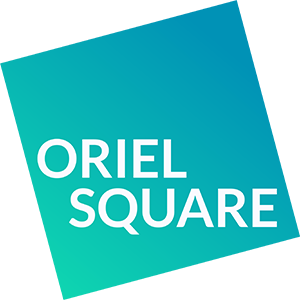Challenges and solutions for primary ELT in MENA1
by Frances Amrani

Frances Amrani has been working in the Middle East and North Africa for over 35 years. During that time she has realised that there isn’t one size that fits all for the MENA region and ELT publishing related to it. Here, she talks us through opportunities for innovation and creativity and offers up some solutions for the ELT classroom.
Using PARSNIPS in ELT publishing
Variations in cultural norms and education systems between Lebanon and Oman are just as striking as those between Spain and Sweden.
There has been a tendency to view the Arab world as ‘one-size-fits-all’ when in fact, it is much more nuanced. The variations in expectations, cultural norms and education systems between Lebanon, Morocco and Oman are just as striking as those between Poland, Spain and Sweden. Yet, many publishers use the blunt instrument of PARSNIPS – the so-called ‘taboo’ topics of politics, alcohol, religion, sex, narcotics, -isms or pork – to shape educational materials for the region as if it were homogeneous.
Under the guise of not wishing to offend, publishers can fail to address learners’ real needs.
Arab students are just like any others. All too often, even devout Muslim students are hindered in their learning by the overzealous application of cultural sensitivities. They are prevented from asking simple questions like ‘Does this food contain pork?’ Because they never encounter the word pork in their teaching materials. Under the guise of not wishing to offend, publishers can fail to address learners’ real needs.
English at the expense of Arabic
Arabic is often relegated to a medium for social interaction.
Many parents recognise that for their children to be successful, they require a high level of English. To this end, they focus on the acquisition of English, often relegating the L1 (first language) to a medium for social interaction at home. As such, literacy in their L1 can be surprisingly low.
English language skills have become a social norm and even a required status symbol within society.
Primary students need a solid L1 as a reference point for learning an L2. Often, this isn’t there because a regional Arabic dialect or another language may be spoken at home. There is often a fixation on promoting English through TV, the internet, English medium schools and even English-speaking childcare in early years, at the expense of Arabic acquisition. This fixation is often dictated by the expectations of others, be they the Ministry of Education, potential employers, school inspectors, parents or publishers. It has become a social norm and even a required status symbol within society.
The pursuit of perfect English
The relentless pursuit of perfect English often results in a patchwork of excellent materials. In striving for excellence and often with deep pockets, different countries approach a wide range of experts from all around the world. This leads to British, American and other varieties of English being delivered together at the same time. The result is often disjointed and lacking cohesion.
English has become a social norm and even a required status symbol within society.
In many countries in the Gulf, students will sit a British English exam, use an American English course and be taught by Australian or New Zealander or Indian teachers. This medley of influences produces a unique variety of English, commonly referred to as Gulf English, that is increasingly prevalent in KSA and the UAE.
Until exams change, contextual practice will still prove popular.
Changes to policy and practice
In spite of exposure to learner-focused learning and teacher training, there is still gravitation towards traditional explanations of grammar, even for primary learners. In North Africa, where they have adopted the idea of modelling language in context rather than explaining it, the levels of fluency are much higher and are rapidly improving. In Dubai and elsewhere, using English as the language of instruction in primary schools has also seen positive results.
Misconceptions: “English language learning is all about certification and passing an exam so learners can use it for work.”
Tunisian teacher attending ELT training
However, it isn’t easy to implement these policy changes without buy-in from Ministries of Education and other educational stakeholders. Even in the private sector, it is often easier to sell a course for young learners that ‘looks serious’. In a recent teacher training workshop I delivered, a Tunisian teacher summed up this attitude: ‘English language learning is all about certification and passing an exam so learners can use it for work.’ Until exams change, contextual practice will still prove popular.
A window to the world
Many Arab students are all too aware of how English can open up the window to the world. There’s a dedication to learning English beyond the classroom that you don’t see elsewhere. This isn’t just confined to urban areas. Some of the best students and teachers I have encountered live in remote rural areas, and prior to the digital age would rarely have come into contact with any English-speaking people.
Moving forward: What can we expect for ELT in the Arab world?
There will be increasing moves towards English as the medium of instruction and learners will start at a younger and younger age. Gulf states which already provide primary and kindergarten English lessons will be followed by primary English in most of the North African Arab states. There will be moves towards more private- and commercially-published materials. Many of these will be home-grown and developed by the increasingly skilled ranks of Arab heritage ELT educationalists.
Frances Amrani has 35 years of experience working with schools in the MENA region. Based in Cambridge in the UK, Amrani Education offers educational consultancy and tailored teacher training. Get in touch: amranieducation@gmail.com
Find out how Oriel Square can help your organisation deliver high-quality ELT resources for the MENA region and beyond by getting in touch.
- Feature image by Wooden Puzzels: https://www.woodenearth.com/collections/wood-jigsaw-puzzles ↩︎

